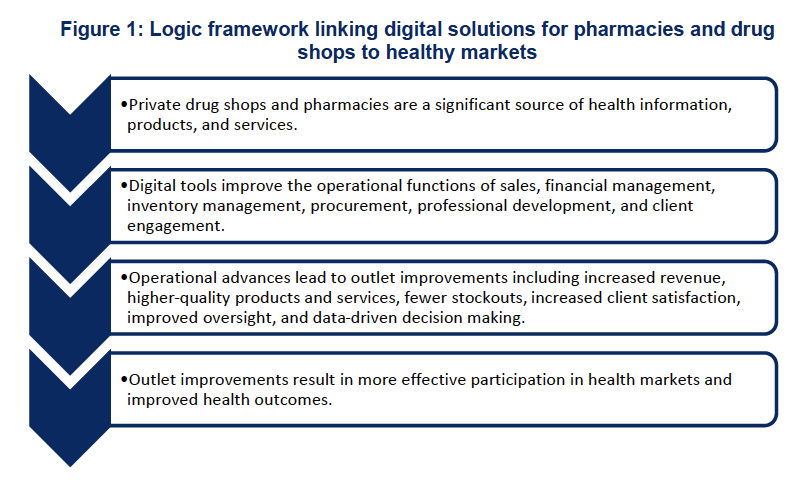Market-Driven Digital Innovations for Private Pharmacies and Drug Shops
Globally, the production, delivery, and consumption of health information, products, and services is in the middle of a historic digital transformation. Electronic health management information systems have revolutionized how countries collect, manage, and use health data and respond to population health needs and crises. Clinical facilities can digitally monitor and predict patient needs and commodities. Public and private health insurers have digitized enrollment, invoicing, and claims-processing functions to improve participation and increase the speed of reimbursement. Health workers can use mobile-enabled decision-aids to screen, diagnose, and engage with patients virtually. And individuals can participate more fully in their well-being through wearable health technologies, digital health applications, artificial intelligence chatbots, e-commerce platforms, mobile-enabled enrollment in health insurance, and other innovations. The potential benefits of digitization in the health sector include the democratization, systemization, and improved use of health information, increased access to essential health products and services, improved efficiency and decreased costs across the supply chain, higher quality, and satisfaction across the continuum of care, and, ultimately, better health. Yet this digital transformation is happening unevenly, with more rapid advances and adoption of technology occurring in high-income settings and among larger health facilities and health systems. To ensure that the poorest and most vulnerable populations realize the benefits of the digital health revolution, the acceleration of this digital transformation among frontline facilities in low- and middle-income countries (LMIC) should be a priority.
SHOPS Plus
